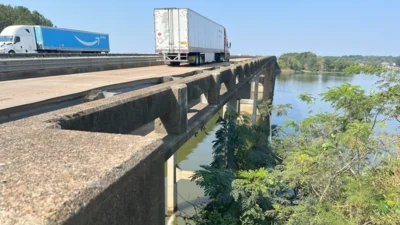The Congressional Record is a unique source of public documentation. It started in 1873, documenting nearly all the major and minor policies being discussed and debated.
“Farm Workers (Executive Session)” mentioning Tommy Tuberville was published in the Senate section on pages S3946-S3947 on June 7.
Of the 100 senators in 117th Congress, 24 percent were women, and 76 percent were men, according to the Biographical Directory of the United States Congress.
Senators' salaries are historically higher than the median US income.
The publication is reproduced in full below:
Farm Workers
Madam President, on another issue, on another topic, when the pandemic was first declared in March of last year, we entered a world of uncertainty. We were confronted with the reality that our schools and our workplaces were going to be shut down in the foreseeable future, family gatherings and get-togethers were going to be restrained, and our favorite places for relaxing and fun--restaurants and stores--were basically closed. But amid all these uncertainties, one thing remained constant and dependable: our domestic food supply. Despite the disruptions, panic buying, and supply chain bottlenecks that arose during the pandemic, our domestic food supply remained fundamentally intact every step of the way.
Over the past year, most of us had the assurance that when we stopped at a grocery store, there was plenty of food for our family, and when grocery store shelves started to run empty, we could always trust that more food was on the way because farmers were doing their job and distributors of food supply were doing the same. It goes to show that, thanks to American agriculture, we are blessed by abundance.
As we come together to commend the courageous doctors, nurses, and other frontline workers who have cared for our loved ones, there is another group of essential workers who have toiled alongside our farmers and ranchers to keep our families fed: farm workers.
I am sure most Americans know very little about the farm workers who supply the food we eat every day. In Illinois, we have 20,000 of these farm workers. They plant, harvest, and pick our State's most lucrative crops.
Across the country, we have 2.5 million farm workers. Roughly half of these 2.5 million are undocumented. These undocumented farm workers are part of our communities, and many are parents of American children. But despite the essential work they do to keep our families fed, their second-class status in America means that they are often subject to harassment, untenable working conditions, substandard housing, and they live under constant threat of deportation.
Last month, The Guardian news service published a piece on the working and living conditions for farm workers in southern Texas. I want to share a few passages about one worker in particular. Her name is Linda. Nina Lakhani writes that Linda ``works six days a week, sometimes seven, putting food on Americans' tables but earns barely enough to cover the bills and depends on food stamps to feed her [own] family,'' her children.
After long days in the fields, [Linda] sleeps on an old couch in the kitchen-lounge as part of the house was left uninhabitable by a fire and a hurricane.
But she calls it home.
Her 11-year-old son [who has some learning disorders] sleeps on the other couch . . . two daughters share a bedroom where water leaks through a mouldy roof. The eldest, a 16-year-old . . . and her 6-month-old baby sleep in a room with cindered walls.
Last summer, [Linda] and her three teenage daughters contracted Covid-19. . . . Rather than risk going to an emergency room, a relative with legal immigration status crossed the border to Reynosa and purchased a small tank of oxygen [for Linda].
Linda has lived in the United States of America for more than 25 years. She is one of the many undocumented farm workers who keep my family and our families fed. Yet she herself can barely feed her own family. Her experience is not an isolated one.
I want to share one last passage from the article in The Guardian:
``Even before the pandemic, farms were among the most dangerous workplaces in the country, where low-paid workers have little protection . . . long hours, repetitive strain injuries, exposures to pesticides, dangerous machinery, extreme heat and animal waste.'
Now add this contagious virus that these workers face too.
According to the Environmental Working Group, more than a dozen States don't provide any form of PPE or COVID testing for farm workers, and there are no social distancing guidelines in place on these farms. In some cases, workers arrive to the fields in tightly packed trucks, and the crews reportedly share cups of water from the same cup during the day.
I think it would be accurate to classify these working conditions as dangerous, but these essential workers don't have the luxury of being able to advocate for themselves--because they are always under the shadow and risk of deportation.
We in the Senate can change that. We can pass a piece of bipartisan legislation that has already passed the House. It is called the Farm Workforce Modernization Act. This legislation would fundamentally change the lives of hundreds of thousands of these farm workers who came to our rescue during the darkest days of the pandemic, who kept working despite the threat of COVID-19 and the fact that they had few creature comforts of their own.
This is legislation that has been in the making for years. It would provide a path to lawful, permanent residency for undocumented farm workers and their family members. That means they would be able to do the essential work they have already been doing without living in fear of being deported and losing their kids. It also means these workers could advocate for higher wages, safer working conditions, which would make our Nation's farm labor workforce more stable and strengthen the durability of our food supply chain.
Offering these farm workers a path to permanent residency is the least that we could do to acknowledge their tireless, back-breaking work during this pandemic. Over the past year, we have heard a lot of praise for the essential workers of America. I join them, of course. At our time of need, they did their job, sometimes at great personal cost. Now it is time to do our job and pass the Farm Workforce Modernization Act.
Enacting this legislation is not just about doing the right thing for workers; it is about doing the right thing for our economy and doing the right thing, period.
When the pandemic hit last year, it caused the worst economic crisis since the Great Depression. Twenty-two million jobs vanished in America. Millions of working families lost their source of income, and some, for the first time in their lives, struggled to put food on the table. Can you imagine how much worse this crisis would have been if our Nation was saddled with a food scarcity crisis as well? Thanks to our farmers and these farm workers I am speaking for today, we never faced it. It is one of the many examples of how immigrants make our country stronger. We take them for granted. They go to work every day and do the dirtiest, most dangerous jobs in America. Now we have to do something for them.
According to last year's census, America's population grew at the slowest rate since the 1930s. That is a warning sign for the future of our economy. If our population growth continues to slow, our Nation's tax base will shrink. It means we will have fewer working-age adults who can help support elderly Americans--a population that is expected to double over the next few decades. To grow our economy, we need to bring people out of the shadows so they can continue to contribute to America for years to come. So when we vote on legislation like the Farm Workforce Modernization Act, we are really voting for our economic future.
I would like to remind my colleagues that America didn't build the world's greatest economy by closing our doors, crossing our fingers, and doing one another's laundry. We did it by welcoming the workers of the world, by offering them a home where they can earn an honest living, pay their fair share, and secure a brighter future for their children.
Many people say: Well, we want to get those Ph.D.s from India, China, and Asia. We want them living here. They are going to be good for our economy, and they are going to create businesses.
That is all true. I stand behind that as well. But there are also many workers who don't have that level of education but have a determination and a work ethic that have always been part of success in the American economy.
This unique American promise, build a brighter future for their children as well as ours, is the bedrock of our Nation. No other country in the world can deprive us of it. We can only deprive ourselves by refusing to fix a broken immigration system that leaves millions of hard-working families in the shadows of our society. If we want to continue leading in the 21st century, if we want America to be in first place and not second place, we need to keep the American promise alive, and we need to do it by passing the Farm Workforce Modernization Act, joining together in support of comprehensive immigration reform.
Madam President, the issue of immigration, as you probably know, is a point of passion of mine. I know it is one of yours. You mentioned to me the other day in passing that you are the only true immigrant in the Senate, and it is, I guess, historic that I would give this speech and you would be presiding over the Senate as I do. I am sure you feel as I do. These people go to work every single day. They do the dirtiest, hardest, most dangerous work in America, and they do it without any hope of a great future because they are undocumented. They have no future. The person they are working for this week may decide on Friday night not to pay them anything. Are they going to go to court to fight for their rights as workers? Probably not. They don't feel they have any rights because they are undocumented.
But a good thing happened here years ago when a coalition of Senators, Democrats and Republicans, put together a farm worker provision. Now the House has done it for us again. They have led the way with the Farm Workforce Modernization Act and passed it and sent it here. It is time for us to take up this measure.
I have talked to a number of our Republican friends, and many of them are from agricultural States. They understand it, and they support it. They want to be a part of it. You would be surprised if I told you their names on the floor, but I am careful not to. They are worried because this issue of immigration is controversial. But they understand the fairness of it all.
I want to salute Michael Bennet, the Senator from Colorado, who has been a leader on this subject from the start. Years ago, we had a coalition effort, the Gang of 8 effort. He was the person who put together the farm worker provision. I think Dianne Feinstein was a great contributor in that effort as well.
Michael Bennet is back again working for this bill. We ought to take this up. We ought to do it this week. We ought to pass it out of the Senate, the bill that passed the House, and, in so doing, we would be doing a favor for essential workers--some of the lowest paid, hardest working people in America. It is only right, and I hope we do it soon.
I yield the floor.
I suggest the absence of a quorum.
The ACTING PRESIDENT pro tempore. The clerk will call the roll.
The legislative clerk proceeded to call the roll.
Mr. TUBERVILLE. Madam President, I ask unanimous consent that the order for the quorum call be rescinded.
The PRESIDING OFFICER (Ms. Baldwin). Without objection, it is so ordered.





 Alerts Sign-up
Alerts Sign-up